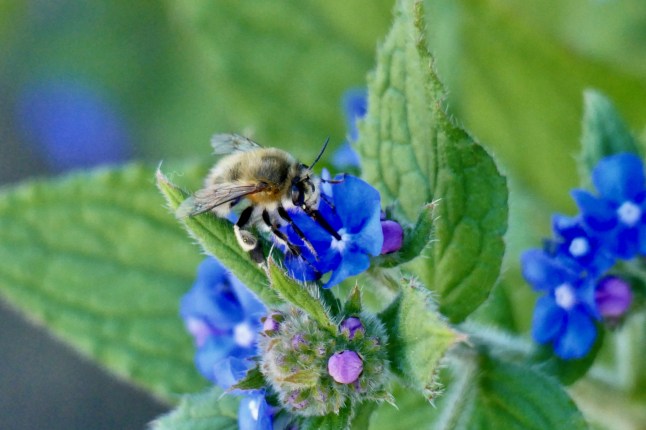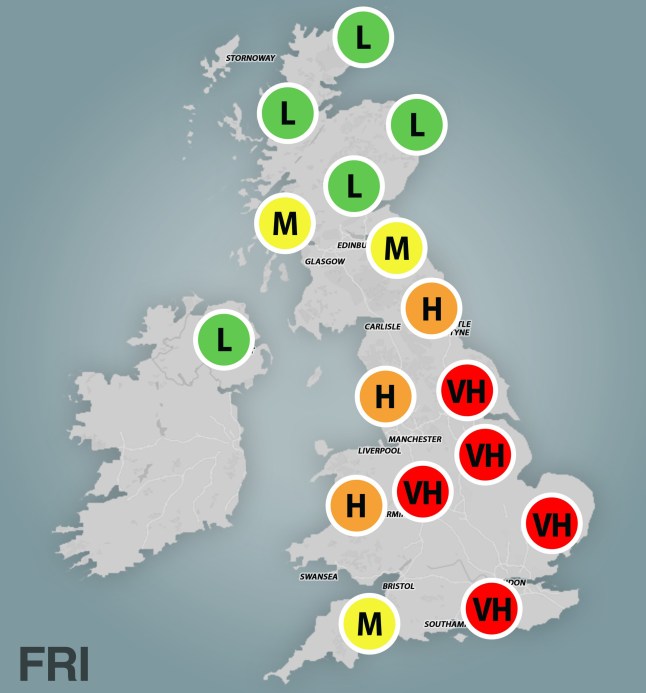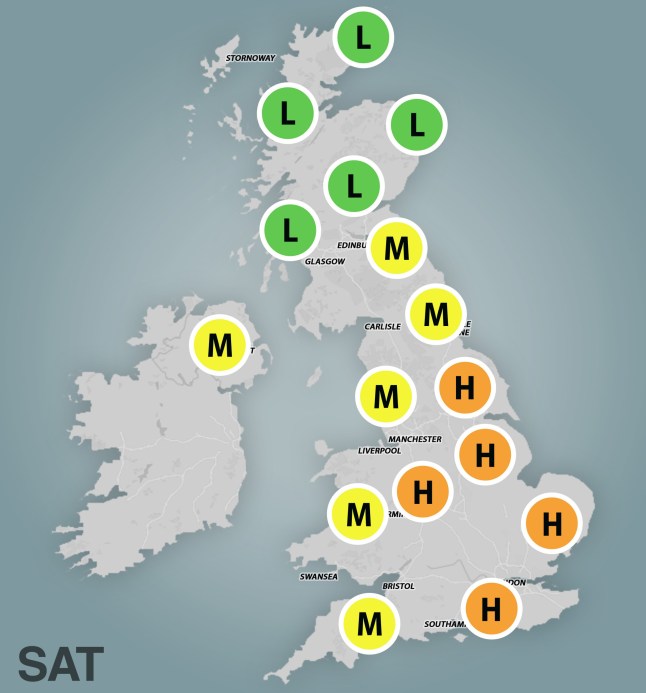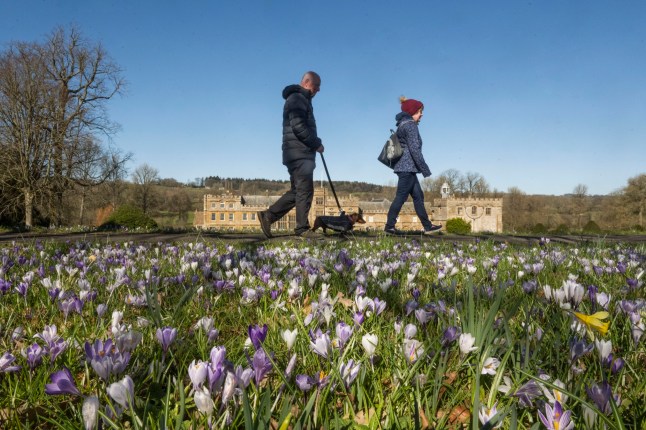
Pollen levels will increase this weekend – check if you’re affected (Picture: Shutterstock)
Spring has sprung – the flowers are blooming,temperatures are slowly rising,and pollen has made its unwelcome return.
This Easter weekend,the Met Office has issued a warning as pollen levels are set to skyrocket.
Those with hayfever should prepare for more intense symptoms as pollen counts across England and Scotland increase.
The East and West Midlands,London,the South East and Yorkshire and Humber will see ‘very high’ pollen levels beginning tomorrow.
North East and West England,along with Wales,will also see ‘high’ levels,so be sure to stock up on allergy medication.
It’s not all bad news,though – almost all of Scotland will see just ‘low’ pollen levels,and stuffy noses should subside by Sunday when levels decrease again.

Pollen will peak on Friday before lowering through the weekend (Map: Metro)

Saturday and Sunday will provide a slight reprieve from the pollen (Map: Metro)
The spring and summer months can be difficult for those susceptible to hay fever,and it seems people are already starting to struggle with itchy eyes,with tree pollen season now beginning.
According to Allergy UK,between 10% and 30% of adults suffer from hay fever,along with 40% of children.
Each year,the timing of high pollen can vary depending on the weather,and the pollen count is at its highest during warm and windy weather.
Symptoms are often at their worst for the six months between April and September,but the time frame can vary between each person.
The most common groups of pollen that cause hay fever are trees,grass and weeds.

Flowers are popping up around the country (Picture: BNPS)
Tree pollen usually peaks earlier in the year. Its pollen count is often highest from March until May,though it can stay prominent throughout June,July and August.
Grass pollen doesn’t normally kick off until March or April,but it doesn’t reach its peak until around June or July.
United News - unews.co.za